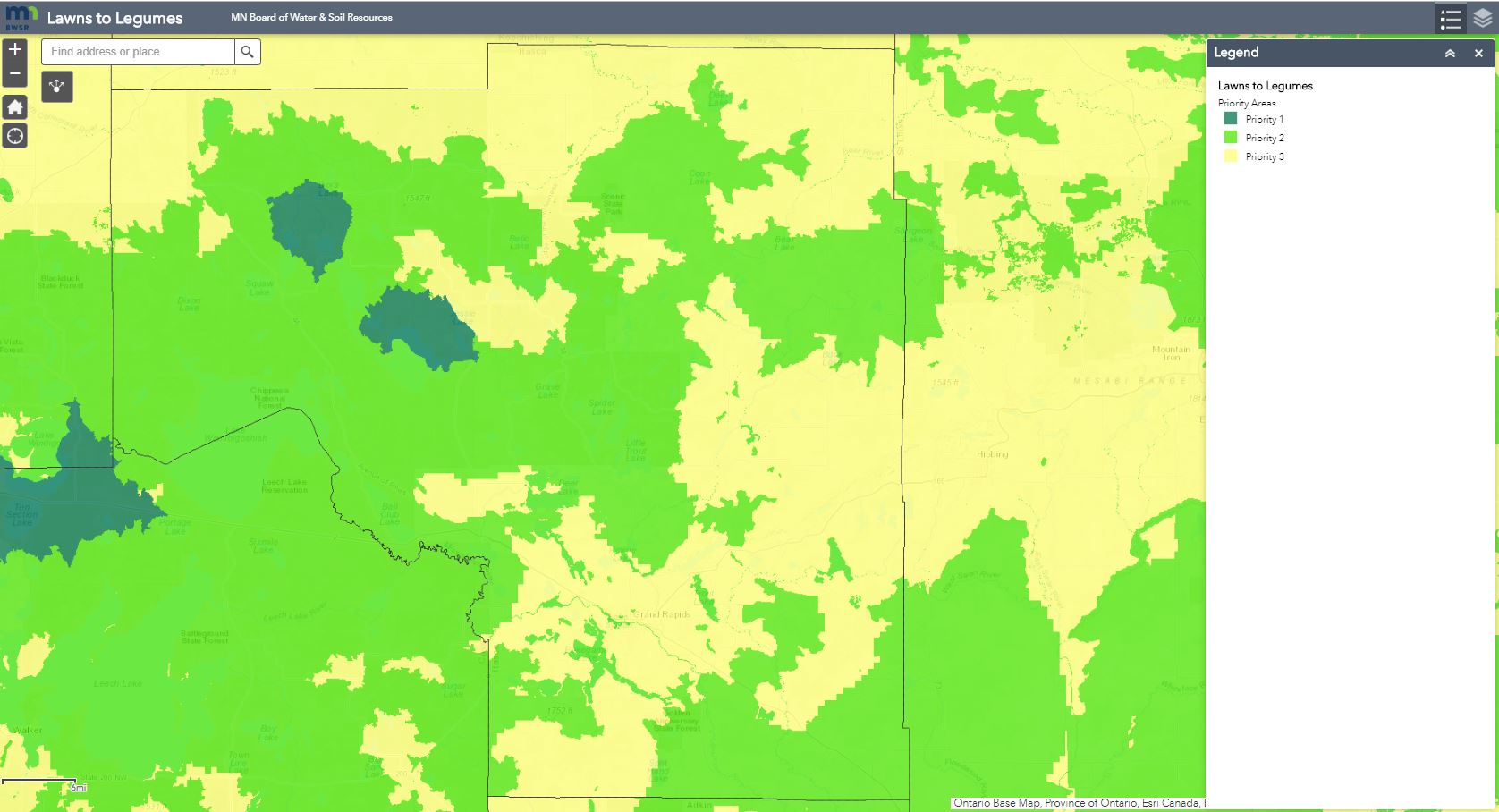The Lawns to Legumes program offers a combination of workshops, coaching, planting guides and cost-share funding for installing pollinator-friendly native plantings in residential lawns. The program also includes a public education campaign to raise awareness for pollinator habitat projects and will establish demonstration neighborhoods that showcase best practices. Partners include Blue Thumb - Planting for Clean Water and Metro Blooms.
Funding is provided through the Environment and Natural Resources Trust Fund (ENRTF) and will be targeted in priority areasto benefit the Rusty patched bumblebee and other at-risk species.
The program has three components:
- Grants to demonstration neighborhoods
- Grants and coaching for individual landowners
- Outreach and education for all interested Minnesota residents
Two types of grants are available:
- Individual Support Grants:Lawns to Legumes offers a combination of workshops, coaching, planting guides and cost-share funding for installing pollinator-friendly native plantings in residential lawns. Minnesota residents can apply to be reimbursed for up to $350 in costs associated with establishing pollinator habitat in their yards. Applications for the first round of funding will be accepted through February 28, 2020. Funding decisions and all notifications will be emailed in March for Spring 2020 installations. How to apply: Apply online at Blue Thumb’s website
- Demonstration Neighborhood Grants:Local governments, tribal governments and nonprofits can apply for grants through a Request for Proposals (RFP) to establish community projects intended to enhance pollinator habitat in key corridors, raise awareness for residential pollinator protection, and showcase best practices. Eligible applicants include soil and water conservation districts, watershed districts, watershed management organizations, cities, counties, non-profits and tribal governments. Applicants can request to be reimbursed for between $20,000 and $40,000 per demonstration neighborhood. Applications will be accepted through January 10, 2020. Organizations overseeing a demonstration neighborhood will work with local residents to install four types of beneficial planting practices: native pocket plantings, pollinator beneficial trees and shrubs, pollinators lawns and pollinator meadows. Interested organizations can apply on behalf of their organization or on behalf of a group of partners who plan to work together to establish a demonstration neighborhood. How to apply: Instructions can be found in the RFP on BWSR’s website.
More information can be found at Lawns to Legumes
